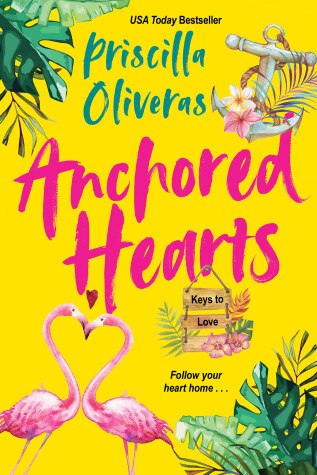
Jeff Sexton
Written on Mar 13, 2021
But Oliveras also executes the Prodigal Son angle particularly well, at least from the son's side. Which I know at least a bit about, having lived my adult life hundreds of miles away from my own parents. (Somewhat interestingly as it relates to this book, while Alejandro grew up in Key West and fled to Atlanta as an adult, this reviewer grew up outside of Atlanta and currently finds himself in Florida - Jacksonville - in what will this year become the longest single place he's stayed since leaving Atlanta. :D) To be clear, I don't have *exactly* the same issues Ale does - my dad (and entire immediate family) and I actually get along great. But I know the general feelings and disappointments pretty damn well, well enough to truly sing Oliveras' praises on this particular storyline.
Finally, to address one criticism that seems common in the lower starred reviews: saying something in Spanish and then explaining it in English: I'm a native American that grew up in land still literally scarred by the American Civil War. While I took a few Spanish classes in high school, I was never even truly conversant, much less fluent. But I've studied a lot about a lot, and it is my understanding that such mixtures of languages are common in second generation Americans, as both Annamaria and Alejandro are here. Further, from a "real world" perspective of trying to sell as many copies of a book as possible, English is the most commonly spoken language in the world, for better or for worse. While Spanish is frequent and indeed dominant in certain regions, even many in those regions *also* speak English to some degree or another. And in most of the globe, more people are more familiar with English than Spanish. These are also simple, stone cold, undeniable *facts* - whether or not you like them or the reason they came to be. Thus, from a *business* side, explaining the Spanish in English - and in particular the way Oliveras does it in this series, more as a natural storytelling technique than a "Habla Espanol?" "Do you speak Spanish?" style common in at least some books I've read over the years, it makes complete sense. And for this reader that barely knows Spanish at all - the above sentence was a decent part of what I can easily recall, though there is likely a fair amount beyond that that I could comprehend in a situation where I'm surrounded by the language - it is helpful, appreciated, and *necessary*, as there would be large segments of the tale that would be completely unintelligible without the translation. Indeed, from a business side Oliveras' only other real options would be to 1) limit herself to only Spanish speakers and thus lose overall sales or 2) eliminate the Spanish completely and lose at least a fair degree of the authenticity she really excels in bringing out here.
And as others have noted, this reader too is hoping that the one female character introduced late in the book is truly the fit for the one remaining single Navarro sibling - and that we get to read that tale as well. Given the year spacing between Island Affair and this book, perhaps this time 2022? Until then...
Very much recommended.
